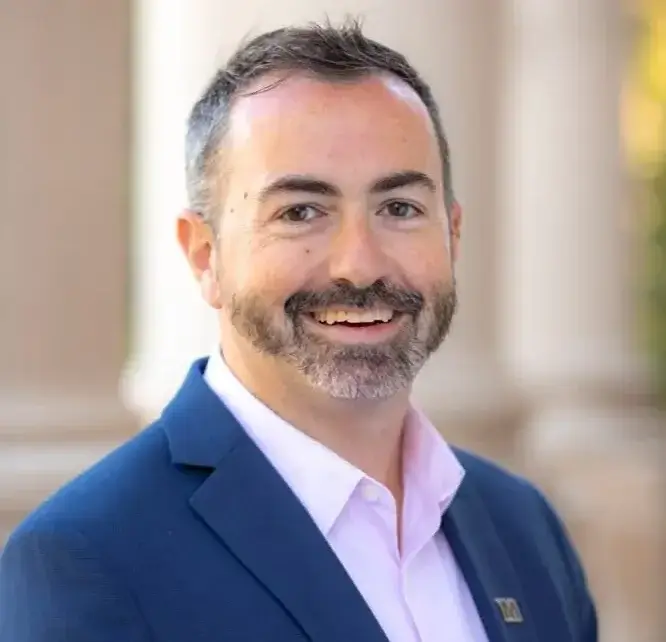On Tuesday, Sept. 5, Monmouth students received an email on behalf of Shannon Killeen, Associate Vice President and Dean of Students, about the expansion of mental health support services available to the student body as a result of partnering with UWill, a virtual mental health and wellness platform available 24/7.
This new partnership enhances Monmouth’s Counseling & Prevention Services, especially due to the rise in demand for mental health services. An article from NBC News written by Berkeley Lovelace Jr. put out a poll with more than 2,200 U.S. adult respondents and 26% of the respondents said that they expected to experience more stress in 2023.
With this new addition to counseling services sessions are now no longer limited to weekdays, you may talk with someone in the comfort of your own home, and if you are having an emergency you no longer have to wait until Monday to see a counselor.
While there are many benefits to this expansion there could be unforeseen downsides as well, such as the loss in translation from screen to screen such as body language, and nonverbal cues. Christopher Mckittrick, PsyD, LPC, ACS, Director of Counseling and Prevention Services, said, “It’s all about that goodness of fit between the student and the provider but also the format, and so if someone is comfortable and it’s helpful for them to do it on the phone or through a video platform that’s awesome.”
He also said that if virtual or over-the-phone sessions are not helping the student or making an impact, then he would strongly recommend in-person sessions for comfort or clinical reasons, but that is the responsibility of the counselor to determine what is appropriate for a given student.
“If the online sessions are not resonating and that feedback that in-person piece isn’t there and need it for their own personal comfort or clinical reasons then we would recommend in-person sessions. Part of the responsibility of the counselor is to determine what is appropriate. If we start with an online session and I notice a disconnect, or there seems to be something interrupting that therapeutic relationship it’s my responsibility to recognize and recommend we meet in person,” Mckittrick explained.
He elaborated that everyone associated with Uwill are fully licensed clinicians; they are not volunteers and are bound by ethical legal guidelines for the practice.
“I’m excited that everybody associated with Uwill are fully licensed clinicians they are not volunteers and are bound by ethical legal guidelines for the practice,” Mckittrick said.
James Pillar, Vice President of Student Life, added, “Monmouth is partnering with UWill, a national program that will complement our on-campus services. I believe the counselors are trained to pick up on verbal cues (i.e., what is said and not said during the sessions) and assist our students.”
Pillar also said that UWill is not meant to replace in-person counseling and that the service is free of charge.
“This supplemental program will offer help after hours, and when the Counseling Center is closed, it is not meant to replace face-to-face counseling. We are fortunate to have support from New Jersey Governor Phil Murphy, Secretary of Higher Education Brian Bridges, and University President Patrick F. Leahy. Their collaboration will allow us to provide such a service free of charge,” he said.
Dickie Cox, MFA, Master’s in Communication Graduate Director and Associate Professor, said, “I am not an expert in psychological counseling and have only had a few psychology courses over the course of my life, but I can base it as a teacher having lots of experience in person and virtually in the last few years. I think there does stand to be some attrition of information that we can get nonverbally when we use transactional services that are virtual, but I believe most clinicians are being trained and don’t think would roll out a service that didn’t have expert training attached to it.”
Liam McGrath, junior psychology student, said, “I think CPS’s addition of online services is a valuable feature to Monmouth’s Counseling office, as it provides students with a very convenient way to receive counseling. Though some may feel that communicating with a counselor through a phone or video call won’t be as meaningful as experiencing in-person contact, it comes with the opportunity to receive counseling wherever a student is, regardless of whether they’re able to get to CPS’s office or not.”
Jefferson Gonzalez, junior communications student, who has used Counseling and Prevention services, said, “I don’t believe things will get lost in translation. I believe that therapists are trained to adapt to these new mediums and can still provide valuable support to someone who might need it.
Pillar added “I think this will tremendously help those students who need to speak with someone. Students can now talk with someone 24 hours a day, seven days a week. I hope this is a tool our students can use if they are experiencing stress, anxiety, or other mental health-related issues. I also believe it provides a level of comfort knowing it is available.”
McGrath said, “Students very regularly experience varying levels of stress, and counseling will have varying levels of an effect on reducing a student’s level of stress. I think that with the ability to access counseling from the convenience of your own home/dorm, students who feel their stress levels decrease from receiving counseling will now feel less stressed than before thanks to this new addition.”
Mckittrick said, “I definitely support students who are more open to counseling and seeking help now than two years ago, five years ago, ten years ago and so this is a wild world we are living in to be a college student, and all these compounding factors are going to make the experience of being a student exciting and challenging. Not just at Monmouth but all colleges there is more of a demand and there will be more demand and how do we meet that demand with quality care this is where I am excited to have the partnership with UWill.”
He explained that Monmouth has received another part of the grant that includes training 40 therapy dogs so we can get a pack of dogs for Monmouth University and a zen space on campus with a massage chair, where students can self-destress if they wish to.
“Another part of the grant that we have access to is the ability to train up to 40 therapy dogs, to have a pack of dogs for Monmouth University, we are also looking to make a zen den a place where students can self-destress and it will include a massage chair and self-guided ways of coping and more holistic approaches to health and wellness.”
Gonzalez said, “Yes I do believe it will lead to less stress because oftentimes students may not be able to visit in person, and having the option to do it anywhere will alleviate that stress and make it more convenient for the student.”
With the addition of this online format to counseling services, a possible question to have for the future is whether will AI be incorporated or have an impact in the mental health world with aspects such as chatbots or therapist’s avatars.
Pillar said, “I do not think counseling via a chatbot is realistic at this time. As a Student Affairs professional, I would not advocate for counseling sessions via AI; however, there may be helpful screening tools that AI can offer and can help licensed professionals provide service.”
“I would say I have mixed opinions on AI chatbots. I do like how they can offer immediate support and resources to someone who may need them but I do not think they can entirely replace therapists. One thing AI will always lack is empathy and emotional understanding and you can only get that from a real person,” Gonzalez said.
McGrath said, “We’re living in a time where the field of AI is talked about more than ever and is easily accessible at our fingertips at all times. Part of the reason why counseling is valuable to many people is the human-to-human, speaking and listening dynamic that most counseling sessions are. I believe that, no matter how advanced or humanlike an AI is, nothing will ever replace a human being in the counseling setting.”
Mckkitrick added, “In its current iteration AI is not there, and this is where counseling and therapy while driven by science so much of it is an art, AI in its current iteration not be able to pick up on body language or nonverbal cues and sometimes what is not said is more important than what is being said, so if you are entering prompts into a system how can AI pick up on what’s not being said.”
Overall the expansion of the Counseling and Prevention services at Monmouth is much needed and will benefit many students who are stressed or seeking help in their time of need, remember that your problems matter, people are here for you all you have to do is reach out.



